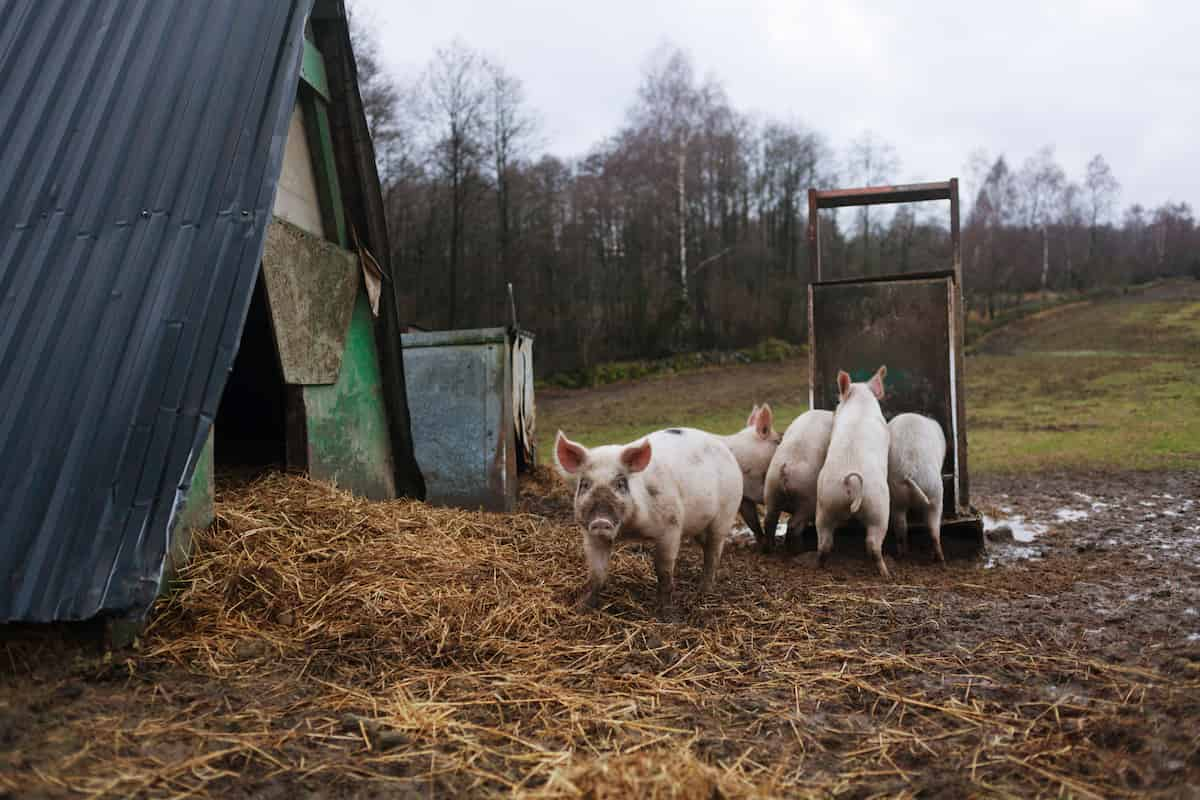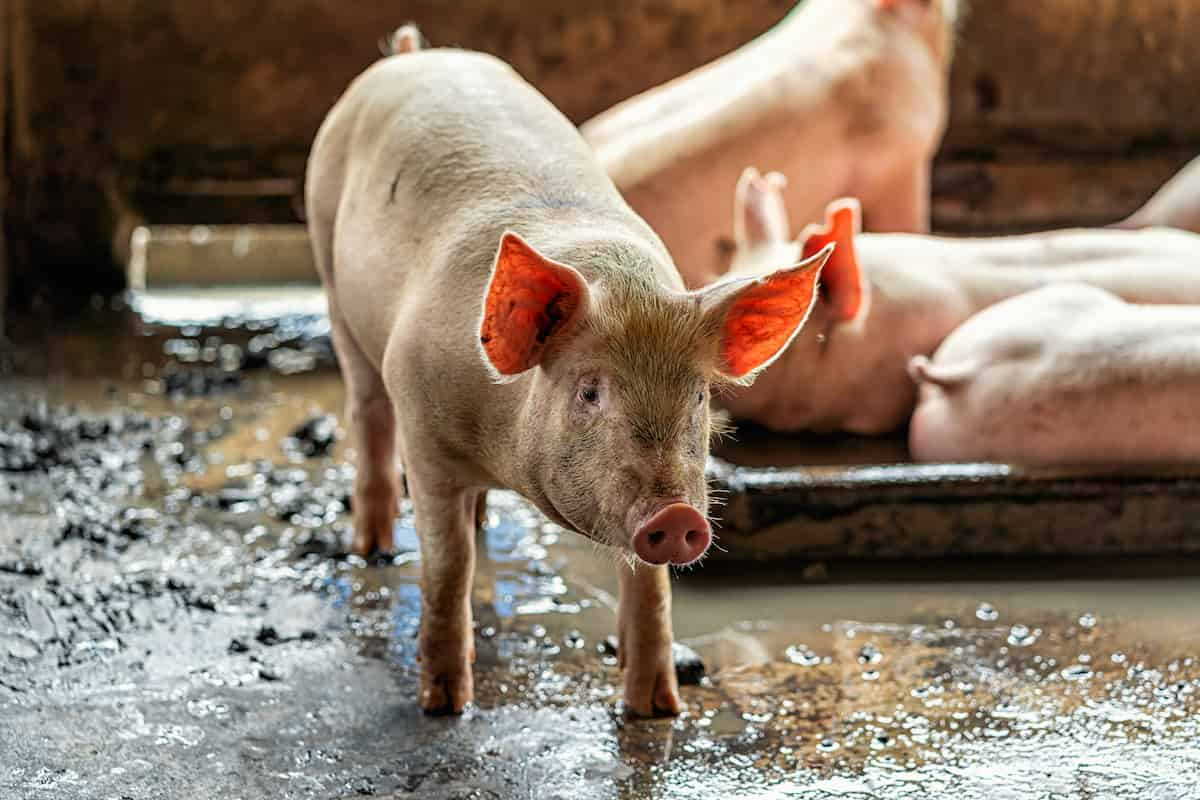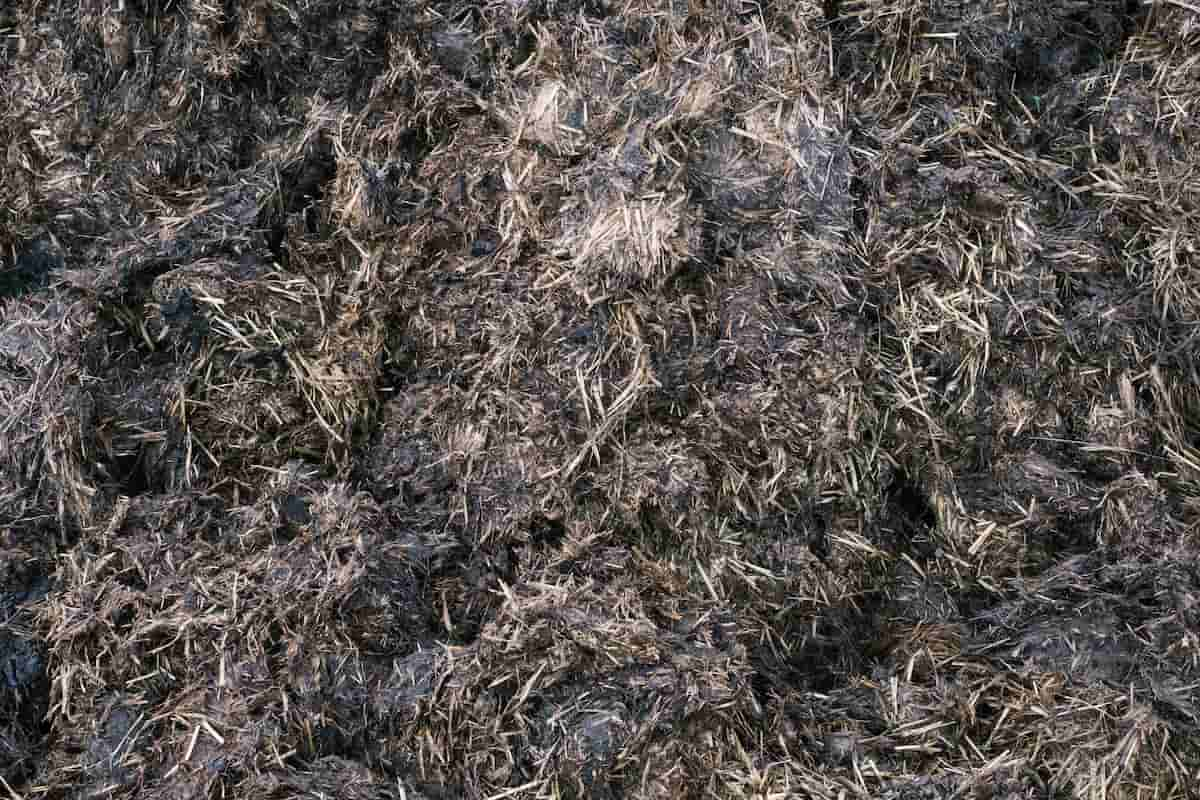Pig manure fertilizer is a valuable source of nutrients for agriculture. Pig manure fertilizer is rich in nitrogen, phosphorus, potassium, and other micronutrients essential for plant growth. It has several benefits for agriculture, including improving soil health, increasing crop yields, and reducing the environmental pollution. Below we learn about pig manure NPK ratio, pig manure nutrient content, effects of pig manure on crops, and pig manure benefits.

Benefits of Pig Manure Fertilizer in Agriculture
Improves Soil Health
Pig manure fertilizer is an excellent source of organic matter, which helps to improve soil health. Organic matter is essential for maintaining soil structure and fertility. It helps to improve soil aeration, water-holding capacity, and nutrient retention. Adding pig manure fertilizer to soil can help increase the amount of organic matter, which in turn helps improve soil health.
Organic matter in pig manure fertilizer helps to build up the soil’s microbial population. These microbes play a crucial role in breaking down organic matter, releasing nutrients, and making them available to plants. Microbes also help to improve soil structure, making it more porous and crumbly. This allows for better water infiltration and drainage, reducing soil erosion and compaction.
Improves Soil pH
Another benefit of pig manure fertilizer in agriculture is that it can help to improve soil pH. The soil’s pH level is an important factor affecting plant growth and nutrient availability. Too acidic or alkaline soil can prevent plants from accessing the nutrients they need, leading to reduced crop yields. Pig manure fertilizer has a neutral to slightly alkaline pH, which can help to balance the pH of acidic soils.
This can improve nutrient availability and plant growth, increasing crop yields. In addition, pig manure fertilizer contains calcium, which can also help to improve soil pH and soil structure. Improving soil pH through the use of pig manure fertilizer can also reduce the need for synthetic fertilizers and soil amendments that are used to adjust soil pH. This can help to reduce the environmental impact of agriculture by reducing the use of synthetic chemicals and the associated greenhouse gas emissions.
Increases Crop Yields
Pig manure fertilizer is rich in nutrients that are essential for plant growth. The most important of these are nitrogen, phosphorus, and potassium. Plants require these nutrients in large amounts and are often limited in soil. Adding pig manure fertilizer can help provide these nutrients to plants, increasing crop yields.
Nitrogen is essential for plant growth, and pig manure fertilizer is an excellent nitrogen source. Nitrogen is required for the production of chlorophyll, the green pigment that is essential for photosynthesis. Plants cannot produce enough chlorophyll without sufficient nitrogen, leading to stunted growth and reduced yields. Adding pig manure fertilizer can help provide plants with the nitrogen they need to grow and produce a healthy crop.
In case you missed it: Frequently Asked Questions About Pig Farming

Phosphorus is required for the development of strong roots and the production of flowers and fruits. It is also required for the conversion of sunlight into energy during photosynthesis. The addition of pig manure fertilizer can help to provide plants with the phosphorus they need to grow and produce a healthy crop. Potassium is another essential nutrient for plant growth, and pig manure fertilizer is a good source. Potassium is required for the development of strong stems and the production of flowers and fruits.
It is also required for the regulation of water in plant cells. The addition of pig manure fertilizer can help to provide plants with the potassium they need to grow and produce a healthy crop. On average, pig manure has an NPK ratio of approximately 0.5-0.3-0.5. This means pig manure is relatively low in nitrogen (N), with a typical range of 0.5-0.8%. It is moderate in phosphorus (P), with a typical range of 0.3-0.5%. It is also moderate in potassium (K), with a typical 0.5-0.8% range.
Reduces Environmental Pollution
Pig manure is a potential source of environmental pollution. If not managed properly, pig manure can contaminate the surface and groundwater with nutrients such as nitrogen and phosphorus. When these nutrients enter waterways, they can cause algal blooms, deplete oxygen levels, and harm aquatic life. Using pig manure fertilizer in agriculture can help reduce environmental pollution by providing a valuable source of nutrients for plants.
When pig manure is applied to fields as fertilizer, the nutrients in the manure are taken up by plants, reducing the number of nutrients available to leach into waterways. Furthermore, using pig manure fertilizer can reduce the need for synthetic fertilizers, often made from fossil fuels, and can contribute to greenhouse gas emissions. Pig manure fertilizer is a renewable resource that can be produced on farms, reducing the need for transportation and storage of synthetic fertilizers.
In addition, using pig manure fertilizer can help reduce soil erosion and improve soil quality, which can also help reduce environmental pollution. When healthy and well-structured soil, it can absorb and retain more water, reducing runoff and erosion. This can help to prevent soil, nutrients, and other pollutants from entering waterways and causing environmental damage. Pig manure fertilizer can also help to reduce greenhouse gas emissions by improving soil health and reducing the need for synthetic fertilizers. Healthy soils can store carbon, which can help to reduce the amount of carbon dioxide in the atmosphere.
Challenges and Considerations
While pig manure fertilizer has many benefits for agriculture and the environment, there are also some challenges and considerations that must be taken into account. One of the main challenges with pig manure fertilizer is the potential for nutrient runoff and leaching. If not managed properly, the nutrients in pig manure can leach into waterways and cause environmental damage. It is important to apply pig manure fertilizer to minimize the risk of nutrient runoff and leaching.
Another consideration is the potential for pathogens and other contaminants in pig manure. Pig manure can contain harmful bacteria, viruses, and parasites that can cause human and animal health problems if not properly handled and managed. It is important to follow proper handling and storage procedures for pig manure to reduce the risk of contamination. This includes storing the manure in covered and ventilated areas, composting the manure to reduce pathogens, and applying the manure at the right time to reduce the risk of contamination.
In case you missed it: Feed Management in Pig Farming: Feeding Plan, Feed Formula, and Feed Requirements

Conclusion
Pig manure fertilizer is a valuable source of nutrients for agriculture. Pig manure fertilizer can be a valuable tool for sustainable agriculture when properly managed and applied.
- Feed Your Flock for Less: Top 10 Tips to Save on Chicken Feed
- Ultimate Guide to Ossabaw Island Hog: Breeding, Raising, Diet, and Care
- Hatching Answers: The Top 10 Reasons Your Chickens Aren’t Laying Eggs
- Eggs and Economics: Breaking Down the Cost of Raising Backyard Chickens
- Defend Your Greens: Proven Methods to Keep Iguanas Out of Your Garden
- Ultimate Guide to Cinnamon Queen Chicken: A Comprehensive Guide for Beginners
- Ultimate Guide to California Tan Chicken: Breeding, Raising, Diet, Egg-Production and Care
- Ultimate Guide to Marsh Daisy Chicken: Breeding, Raising, Diet, and Care
- 10 Types of Chicken Farming Businesses You Can Start for Profits